Mental Health Therapy in New York
Therapists in New York
Filters
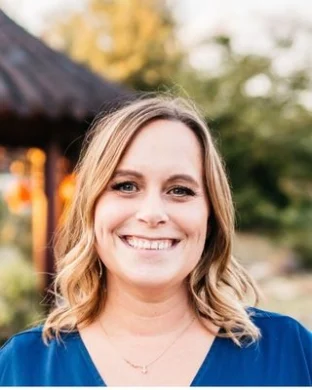
Cara Cole
Cara Cole is a Clinical Social Worker/therapist, providing online sessions. Services include therapy for adults (18+) and seniors (65+). Cara has experience working with Nonbinary People and Queer People. Cara is in-network with insurance providers including Aetna, Anthem, and BlueCross BlueShield. They accept American Express, Cash, and Discover, and may offer sliding scale payment options to help with the cost of treatment. Get in touch to see how therapy can fit your goals and schedule.
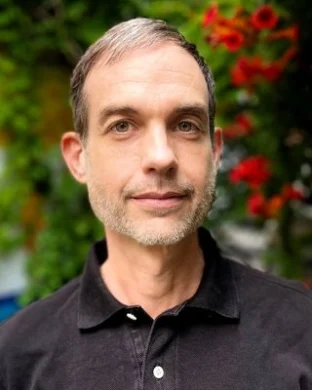
Reuben Lorch-Miller
Reuben Lorch-Miller is a mental health professional, providing both online and in-person sessions. Services include therapy for adults (18+) and seniors (65+). Reuben has experience working with Queer People and Transgender People. Reuben is in-network with insurance provider BlueCross BlueShield. They accept American Express, Cash, and Check, and may offer sliding scale payment options to help with the cost of treatment. Get in touch to see how therapy can fit your goals and schedule.
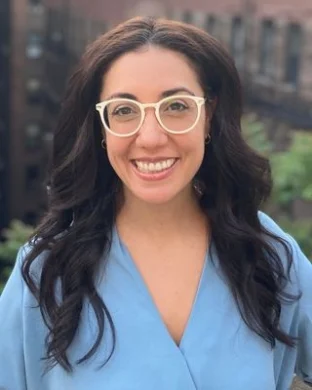
Shelly Sadon
Shelly Sadon is a mental health professional, providing online sessions. Shelly is in-network with insurance providers including 1199SEIU, Aetna, and Cigna. They accept American Express, Discover, and HSA, and may offer sliding scale payment options to help with the cost of treatment. Get in touch to see how therapy can fit your goals and schedule.
Mikaela Center
Mikaela Center is a Clinical Social Worker/therapist, providing online sessions. Services include therapy for adults (18+) and seniors (65+). Mikaela is in-network with insurance providers including Aetna, Cigna, and Meritain. They accept American Express, Discover, and HSA. Get in touch to see how therapy can fit your goals and schedule.
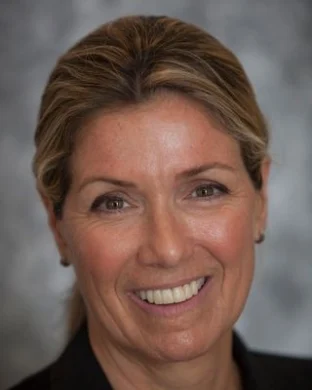
Diane Dillon
Diane Dillon is a Psychologist, providing online sessions. Services include therapy for adults (18+) and seniors (65+). Diane has experience working with Bisexual People, Gay People, Queer People, Racial Justice Advocates, and Transgender People. They accept Apple Cash, Check, and Paypal. Get in touch to see how therapy can fit your goals and schedule.
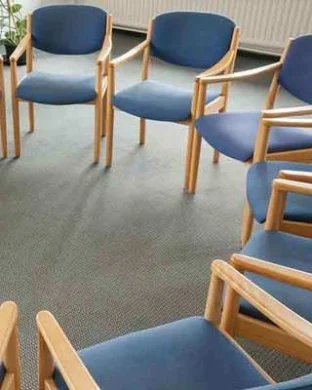
Kenneth Reddan
Kenneth Reddan is a Clinical Social Worker/therapist, providing both online and in-person sessions. Services include therapy for teen & preteen (11 - 18), adults (18+), and seniors (65+). Sessions are available in Polish, Russian, and Spanish. Kenneth is in-network with insurance providers including 1199SEIU, Aetna, and Anthem. They accept American Express, Cash, and Discover, and may offer sliding scale payment options to help with the cost of treatment. Get in touch to see how therapy can fit your goals and schedule.
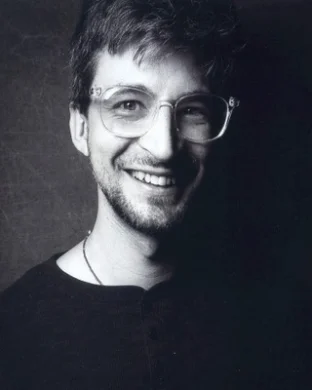
Darin Scot Roy
Darin Roy is a Counselor, providing online sessions. Services include therapy for teen & preteen (11 - 18), adults (18+), and seniors (65+). Darin has experience working with Bisexual People, Gay People, People Living with HIV/AIDS, Lesbians, Queer People, Racial Justice Advocates, Sex Workers, and Single Mothers. Get in touch to see how therapy can fit your goals and schedule.
Ilana Davi
Ilana Davi is a mental health professional, providing online sessions. Services include therapy for teen & preteen (11 - 18), adults (18+), and seniors (65+). Ilana is in-network with insurance providers including Aetna, Cigna, and Harvard Pilgrim. Get in touch to see how therapy can fit your goals and schedule.
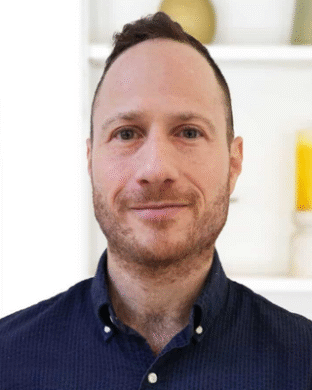
Eric Gottlieb
Eric Gottlieb is a Counselor, providing both online and in-person sessions. They accept American Express, Cash, and Check, and may offer sliding scale payment options to help with the cost of treatment. Get in touch to see how therapy can fit your goals and schedule.
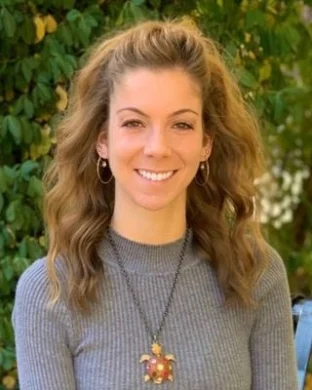
Cynthia Shaw
Cynthia Shaw is a Psychologist, providing online sessions. Services include therapy for adults (18+) and seniors (65+). Cynthia has experience working with Bisexual People, Gay People, Lesbians, Nonbinary People, and Sex Workers. Cynthia is in-network with insurance providers including Aetna, BlueCross BlueShield, and Cigna. They accept American Express, Discover, and HSA, and may offer sliding scale payment options to help with the cost of treatment. Get in touch to see how therapy can fit your goals and schedule.
Mental Health in New York
The total burden of mental health disorders in New York exceeds that of all forms of cancer. More than 20% of New Yorkers experience mental health disorder symptoms, and 10% experience symptoms serious enough to interfere with daily life.
Despite these numbers, residents of the Empire State seem to be fairing well when it comes to mental health support. Mental Health America ranks New York as number one among the states for having a balance of lower mental illness prevalence and higher rates of access to care for adults.
New York holds this ranking, despite an overall decrease in inpatient treatment availability. Over the past decade, the state comptroller reports a steady decline in the number of psychiatric inpatient beds, with 20 NY counties having none.
However, access to treatment via telehealth options continues to rise. In the same recent decade, state policies have expanded telehealth services, and millions of New Yorkers are now accessing services remotely – a trend that is expected to continue.
Free Mental Health Resources in New York
Find A Therapist By City
- Accord
- Airmont
- Albany
- Altamont
- Amawalk
- Amherst
- Amityville
- Ardsley
- Arlington
- Armonk
- Astoria
- Atlantic Beach
- Auburn
- Babylon
- Baldwin
- Baldwinsville
- Ballston Spa
- Batavia
- Bay Shore
- Bayport
- Bayside
- Bayville
- Beacon
- Bedford
- Bedford Hills
- Belle Harbor
- Bellerose
- Bellmore
- Bethpage
- Binghamton
- Blue Point
- Bohemia
- Brewster
- Briarcliff Manor
- Briarwood
- Brockport
- Bronx
- Bronxville
- Brooklyn
- Brushton
- Buffalo
- Cairo
- Cambria Heights
- Camillus
- Canaan
- Canandaigua
- Carle Place
- Carmel
- Carmel Hamlet
- Cedarhurst
- Center Moriches
- Centerport
- Central Islip
- Chappaqua
- Cheektowaga
- Chester
- Chittenango
- Clay
- Clifton Park
- Clinton
- Clyde
- Cold Spring
- Cold Spring Harbor
- College Point
- Colonie
- Colton
- Commack
- Congers
- Coram
- Corning
- Corona
- Cortland
- Cortlandt Manor
- Cross River
- Croton On Hudson
- Earlville
- East Amherst
- East Aurora
- East Greenbush
- East Hampton
- East Islip
- East Moriches
- East Northport
- East Norwich
- East Patchogue
- East Rochester
- East Rockaway
- East Setauket
- East Syracuse
- Eastchester
- Elizabethtown
- Elizaville
- Ellenville
- Elma
- Elmira
- Elmont
- Elmsford
- Endicott
- Endwell
- Erieville
- Far Rockaway
- Farmingdale
- Farmingville
- Fayetteville
- Fishkill
- Floral Park
- Florida
- Flushing
- Forest Hills
- Fort Edward
- Freeport
- Fresh Meadows
- Fulton
- Garden City
- Garden City Park
- Garrison
- Geneseo
- Germantown
- Glen Cove
- Glen Head
- Glen Oaks
- Glendale
- Glens Falls
- Gloversville
- Goshen
- Granite Springs
- Great Neck
- Great Neck Plaza
- Greene
- Greenlawn
- Hamburg
- Hampton Bays
- Harrison
- Hartsdale
- Hauppauge
- Haverstraw
- Hawthorne
- Hempstead
- Hewlett
- Hicksville
- Holbrook
- Hopewell Junction
- Hornell
- Howard Beach
- Hudson
- Huntington
- Huntington Station
- Hurley
- Hyde Park
- Lagrangeville
- Lake Grove
- Lake Huntington
- Lake Placid
- Lake Ronkonkoma
- Lake Success
- Lancaster
- Larchmont
- Latham
- Laurelton
- Lawrence
- Levittown
- Lido Beach
- Lindenhurst
- Liverpool
- Lockport
- Long Beach
- Long Island City
- Lynbrook
- Macedon
- Mahopac
- Malverne
- Mamaroneck
- Manhasset
- Manhasset Hills
- Manhattan
- Manlius
- Manorville
- Maspeth
- Massapequa
- Massapequa Park
- Mechanicville
- Medford
- Melville
- Menands
- Merrick
- Middle Village
- Middletown
- Middleville
- Miller Place
- Milton
- Mineola
- Mohegan Lake
- Monroe
- Monsey
- Montgomery
- Mount Kisco
- Mount Sinai
- Mount Vernon
- Nanuet
- Nesconset
- New City
- New Hartford
- New Hyde Park
- New Paltz
- New Rochelle
- New Windsor
- New York
- Newburgh
- North Babylon
- North Baldwin
- North Bellmore
- North New Hyde Park
- North Salem
- North Syracuse
- North Tonawanda
- North Wantagh
- Northport
- Nyack
- Oakdale
- Oakfield
- Oceanside
- Old Bethpage
- Old Westbury
- Olean
- Oneonta
- Ontario
- Orangeburg
- Orchard Park
- Ossining
- Oswego
- Owego
- Oyster Bay
- Ozone Park
- Patchogue
- Pawling
- Pearl River
- Pelham
- Penfield
- Pine Bush
- Pittsford
- Plainview
- Plattsburgh
- Pleasant Valley
- Pleasantville
- Pomona
- Port Chester
- Port Jefferson
- Port Jefferson Station
- Port Jervis
- Port Washington
- Poughkeepsie
- Pound Ridge
- Purchase
- Putnam Valley
- Red Hook
- Rego Park
- Rhinebeck
- Ridge
- Ridgewood
- Riverdale
- Riverhead
- Rochester
- Rockville Centre
- Rocky Point
- Ronkonkoma
- Rosedale
- Roslyn
- Roslyn Heights
- Rye
- Rye Brook
- Sag Harbor
- Sagaponack
- Saint James
- Salt Point
- Sands Point
- Saranac Lake
- Saratoga Springs
- Saugerties
- Sayville
- Scarsdale
- Schenectady
- Schoharie
- Seaford
- Selden
- Selkirk
- Setauket
- Setauket East Setauket
- Shelter Island
- Sherrill
- Shirley
- Skaneateles
- Sleepy Hollow
- Slingerlands
- Smithtown
- Somers
- South New Berlin
- South Setauket
- Southampton
- Spencerport
- Spring Valley
- Stanley
- Staten Island
- Stillwater
- Stone Ridge
- Stony Brook
- Suffern
- Syosset
- Syracuse
- Walden
- Wallkill
- Walton
- Wantagh
- Wappingers Falls
- Warwick
- Water Mill
- Watertown
- Waterville
- Watkins Glen
- Webster
- West Babylon
- West Harrison
- West Hempstead
- West Henrietta
- West Islip
- West Nyack
- West Point
- West Sayville
- West Seneca
- Westhampton Beach
- Westtown
- Wheatley Heights
- White Plains
- Whitestone
- Williamson
- Williamsville
- Williston Park
- Willow
- Wilton
- Wolcott
- Woodbury
- Woodmere
- Woodside
- Woodstock